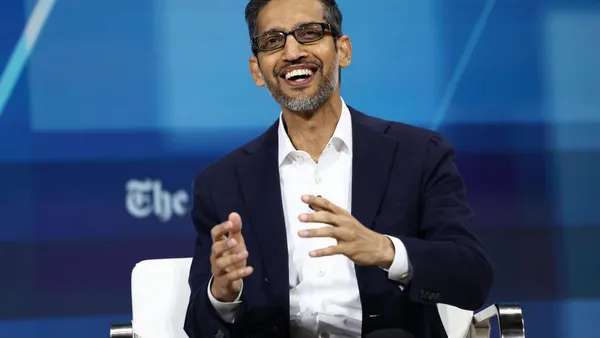Dive Brief:
- Macy’s wants to lower costs and unlock efficiencies, turning to AI and automation in its pursuit of momentum, executives said during a Goldman Sachs conference earlier this month.
- The company has set its sights on simplifying and automating processes, CEO and Chair Tony Spring said at the event. “That has to do with embracing the power of AI as well as generative AI, that had to do with making sure that we were taking cost out of the network," said Spring. "In some cases, also speeding up the delivery of product to the customers where we were behind the competition.”
- The retailer is about 18 months into its three-year turnaround plan called Bold New Chapter, which focuses on improving experiences and operations. While executing the plan, Macy’s has simplified IT operations and moved more workloads to the cloud to operate at a lower cost and have access to more capabilities, according to COO and CFO Tom Edwards, who was appointed to the role in June.
Dive Insight:
Retailers are working to alleviate pressures caused by economic headwinds and changes in consumer spending. Several leading brands are placing confidence in technology to push the business forward.
Ralph Lauren, Under Armor, Williams-Sonoma and others have recently credited AI for improving operations and lowering costs as turmoil continues.
A year ago, Macy’s promoted CIO Keith Credendino to accelerate its modernization goals as part of the company’s growth strategy. Previously, Credendino served as SVP of technology product development for customer experience.
Macy’s has seen improvement from its AI-assisted turnaround efforts. Macy’s Inc. and its namesake retailer reported the strongest comparable sales results in Q2 2025 after 12 quarters of lackluster numbers. Still, tariffs cast a shadow on progress with a 2.5% year-over-year net sales decline.
Adding AI isn’t an easy win for retailers despite the focus. They face several adoption roadblocks, from high implementation costs to the risk of alienating customers, according to a Monday.com survey. More than 3 in 5 leaders in the industry worry about the consistency and quality of generated outputs.















